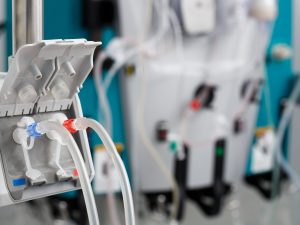
 After a successful organ transplant, it often takes a long time before the patient starts leading a normal life. Some patients feel much better after the transplant whereas others take longer to adjust. As much as you might now be having a functional organ, which will give you a new lease on life, you need to take good care of your health. The quality of aftercare service provided to the patient after a successful is critical to preventing organ rejection.
After a successful organ transplant, it often takes a long time before the patient starts leading a normal life. Some patients feel much better after the transplant whereas others take longer to adjust. As much as you might now be having a functional organ, which will give you a new lease on life, you need to take good care of your health. The quality of aftercare service provided to the patient after a successful is critical to preventing organ rejection.
After a successful transplant, the patient is expected to work closely with the transplant team. These professionals are expected to play an active role in your recovery and ensure you enjoy your new lease of life. Part of recovery caregiving is often encapsulated in the Enhanced Recovery Program.
The Enhanced Recovery after Surgery Program
Also known as the ERAS, this is a multidisciplinary approach is aimed at helping patients recovering from organ transplants recover well. This program was initially designed for use in colorectal surgery, and patients following the Eras program actually experienced fewer complications than those who didn’t. Following its success in colorectal surgery, it has also been proven to be useful in other specialist surgeries like urology, pancreatic, and orthopedic surgery.
ERAS benefits the patient by encouraging them to be actively involved in their treatment. Prior to the surgery, this program also ensures patients are in the best possible condition – nutritional wise. It also promotes shorter recovery times, thus contributing to early discharge from the hospital. The main idea behind ERAS revolves around the following fundamental tenets:
- Improve the patient’s health before receiving treatment
- Improving the quality of care offered during the operation
- Ensure the patient gets the best care during recovery
 How Does ERAS Work?
How Does ERAS Work?
Leaving hospital after a successful operation can be daunting. As such, the ERAS program is tailored to managing the care you get during and after the surgery. ERAS care protocols essentially achieve optimal recovery using the following fundamental tenets:
- Preadmission – offering the patient with nutrition support and preoperative information
- Preoperative – Selective bowel preparation
- Intraoperative – Use of minimally invasive surgical methods
- Postoperative – Pain reduction using anesthetic techniques
- Personal support and encouraging activity
- Reduction of postoperative nausea by managing the body’s fluid balance with medication
These elements form the care plan and should be introduced as a basic standard of care for organ transplant patients by engaging everyone involved in caregiving.
Research has consistently proven that the adoption of ERAS leads to significant improvement in patient outcomes. Ideally, patients enjoy things like reduced recovery times, minimal surgical complications, and most importantly, reduces chances of organ rejection. For effective integration of ERAS into practice, it is imperative to make it part of a structured, collaborative, and multidisciplinary treatment method.




